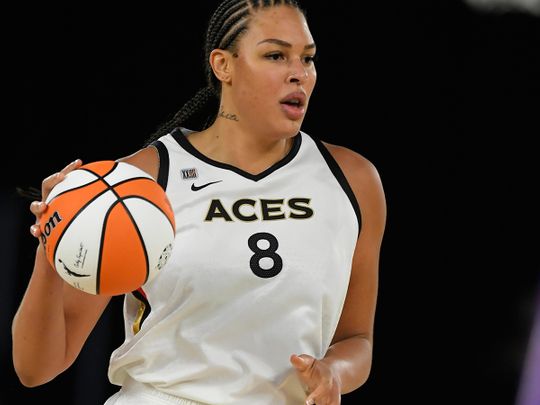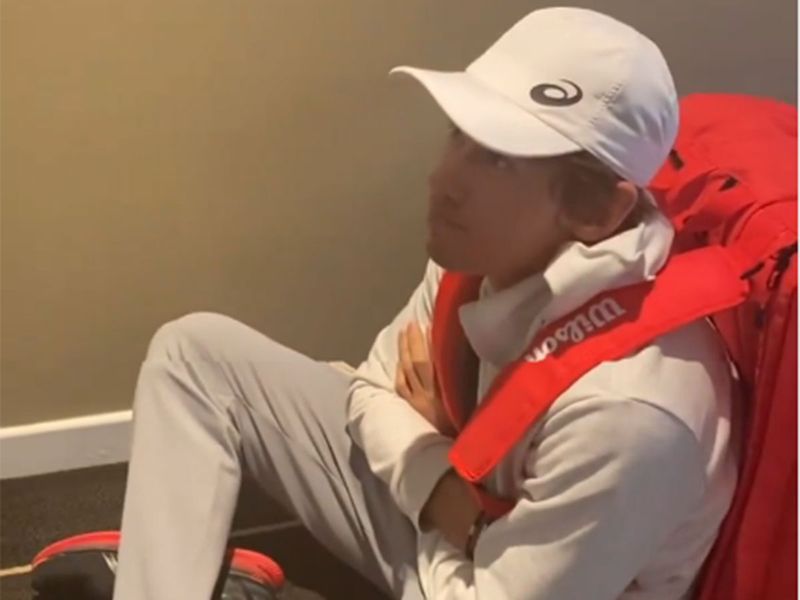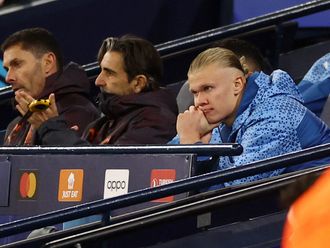
Sydney: Australian Olympic basketball star Liz Cambage pulled out of the Tokyo Games Friday, citing a struggle with her mental health fuelled by the thought of “terrifying” isolation in the Olympic bubble.
Cambage - a stalwart of Australian women’s Olympic basketball team, the Opals - said she could not confidently compete on the world stage while suffering “panic attacks, not sleeping and not eating”.
“I’ve been really worried about heading into a ‘bubble’ Olympics,” the four-time WNBA All-Star said in a statement.
“No family. No friends. No fans. No support system outside of my team. It’s honestly terrifying for me.”
“It breaks my heart to announce I’m withdrawing from the Olympics, but I think it’s best for the Opals and myself.”
Australia’s Olympic chef de mission Ian Chesterman said he understood the decision and wished her a full recovery.
“Liz has made a great contribution to the Australian Olympic Team over two Olympic Games campaigns,” Chesterman said.
“We respect her decision and wish her the best in returning to full health.”
The 29-year-old won bronze with the Opals at the 2012 London Olympics. She is the second Australian basketballer to withdraw from the Games citing mental health concerns after former Dallas Mavericks swingman Ryan Broekhoff pulled out in June.

Alex De Minaur to miss Games
Australian tennis player Alex de Minaur has tested positive for COVID-19 prior to his departure for Tokyo, the Australian Olympic Committee said.
U.S. basketball star Bradley Beals’ Olympic dream was cut abruptly short on Thursday when USA Basketball announced the Washington Wizards star will miss the Tokyo Games after he entered coronavirus protocols at the training camp in Las Vegas.
Several COVID-19 cases have emerged in the past week involving athletes and other people involved with the Games, which start July 23, but all have been either in pre-departure or on arrival in Japan.
Athletes started entering the Olympic Village on Tuesday and there have been no reports of virus infections or scares inside the village. Olympic organisers say “bubbles” will protect Games participants and the Japanese public from the virus spreading.
Tokyo is under a state of emergency for the pandemic, but most steps to curb its spread are voluntary although many people say they have grown weary of complying.
The Tokyo Games will be held without spectators at most venues, and officials are urging the public to stay home and watch on TV, depriving Japan of its hopes for a Games with pomp and public spectacle.
Japan has not suffered the explosive outbreak seen elsewhere, recording more than 820,000 cases and about 15,000 deaths. But host city Tokyo had 1,308 new cases on Thursday.
The city’s COVID-19 monitoring committee warned the same day that if the pace of contagion picked up as people move around and new, highly transmissible variants spread, the seven-day moving average could nearly double to 2,406 in four weeks.
That would approach the highest levels seen yet in the course of the pandemic.
Japan’s rocky vaccination rollout has also sparked frustration among the public and the municipal authorities that handle much of the programme. An initially slow start gained momentum, only to hit roadblocks due to supply bottlenecks.








